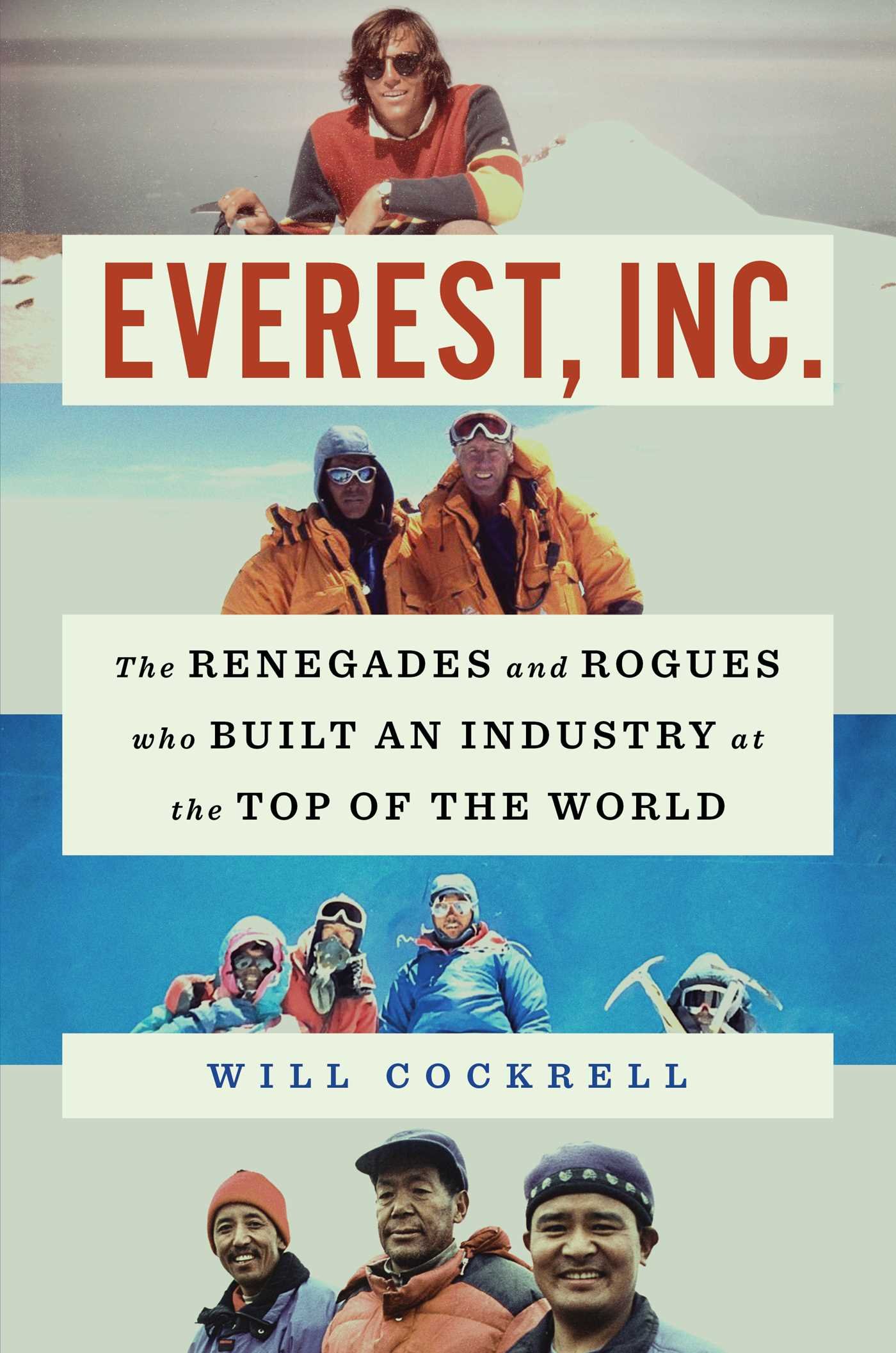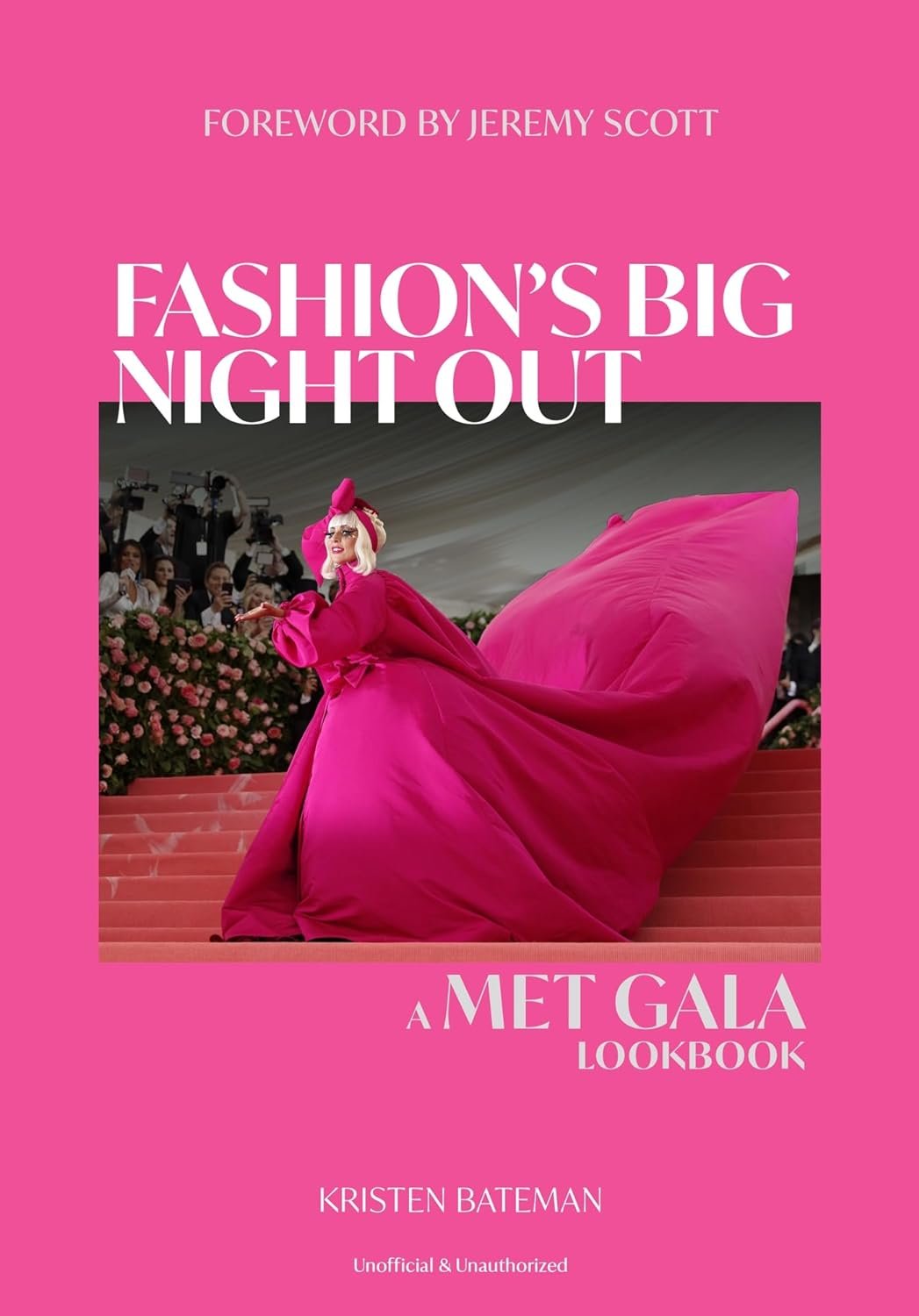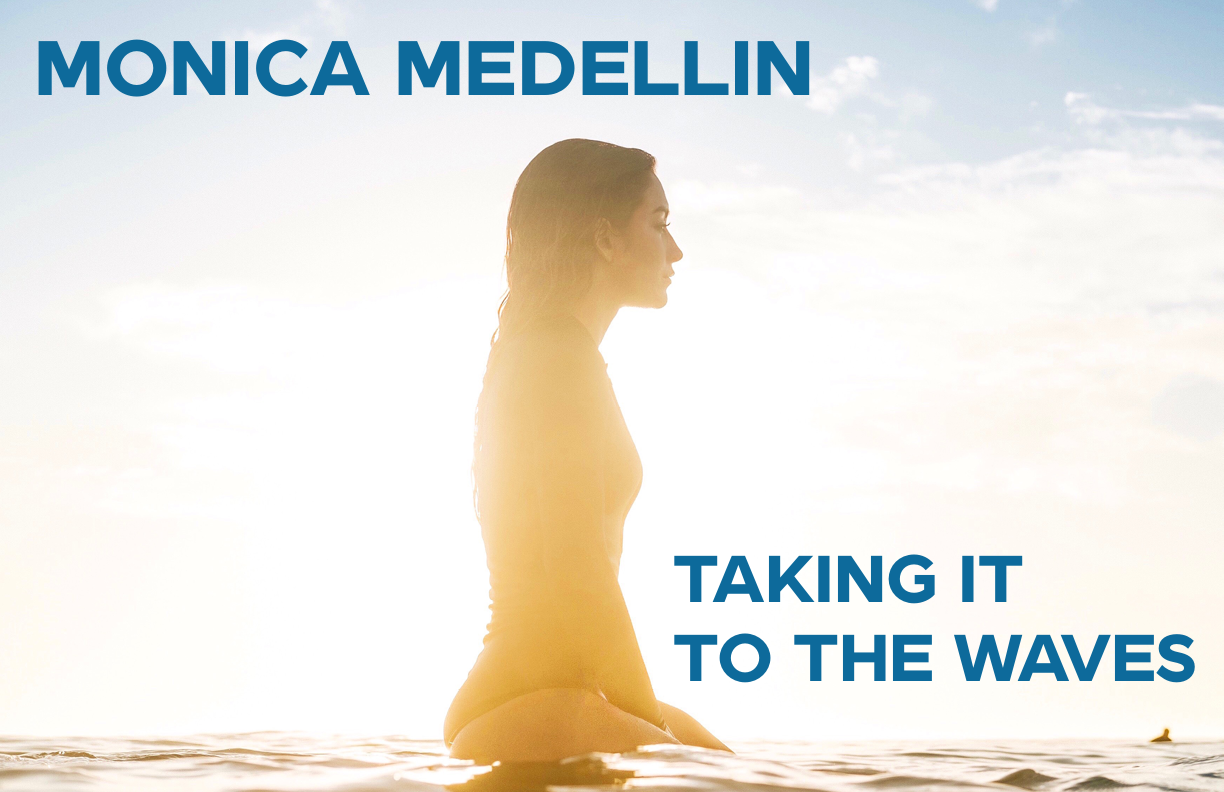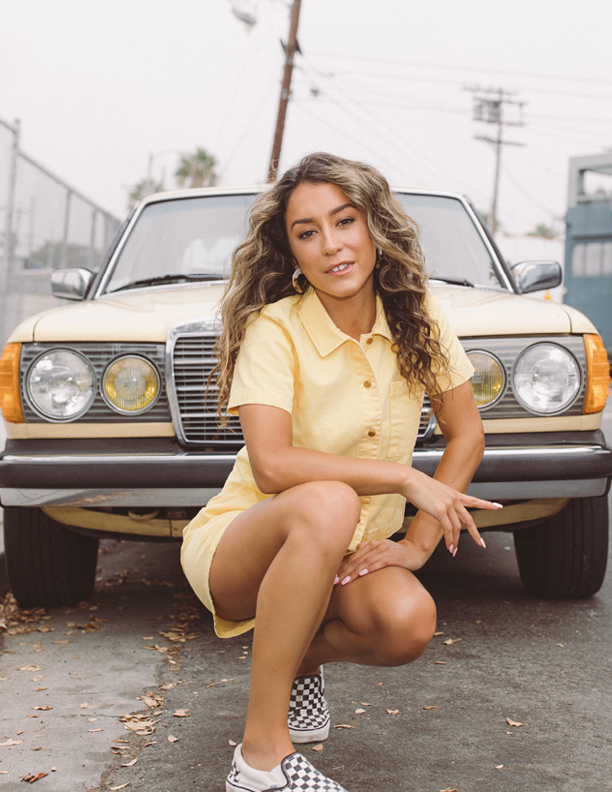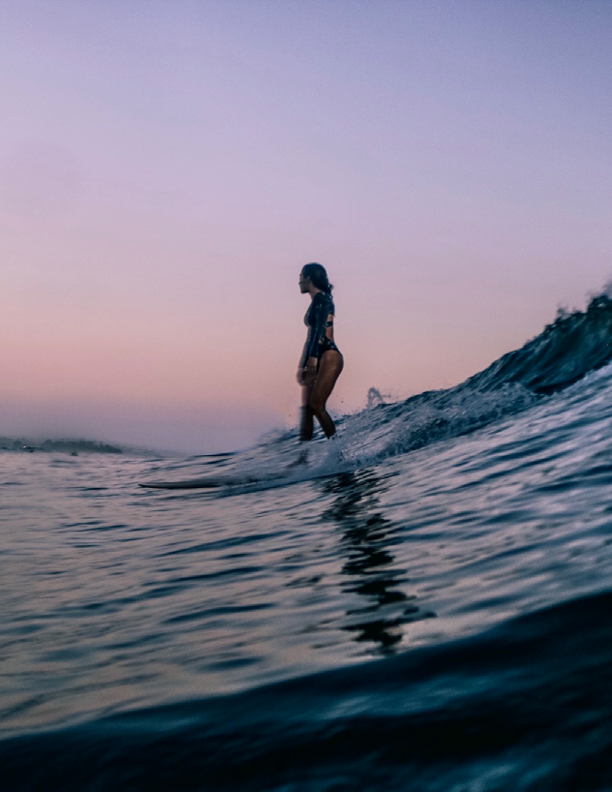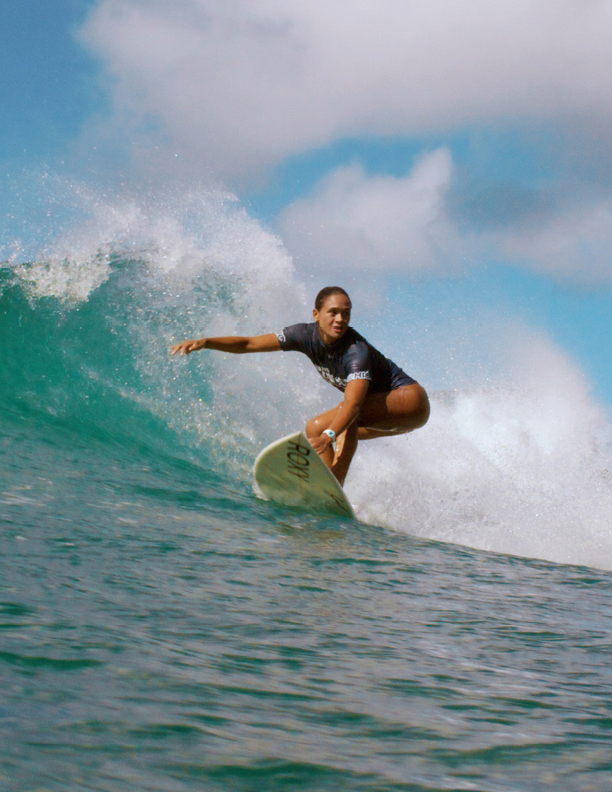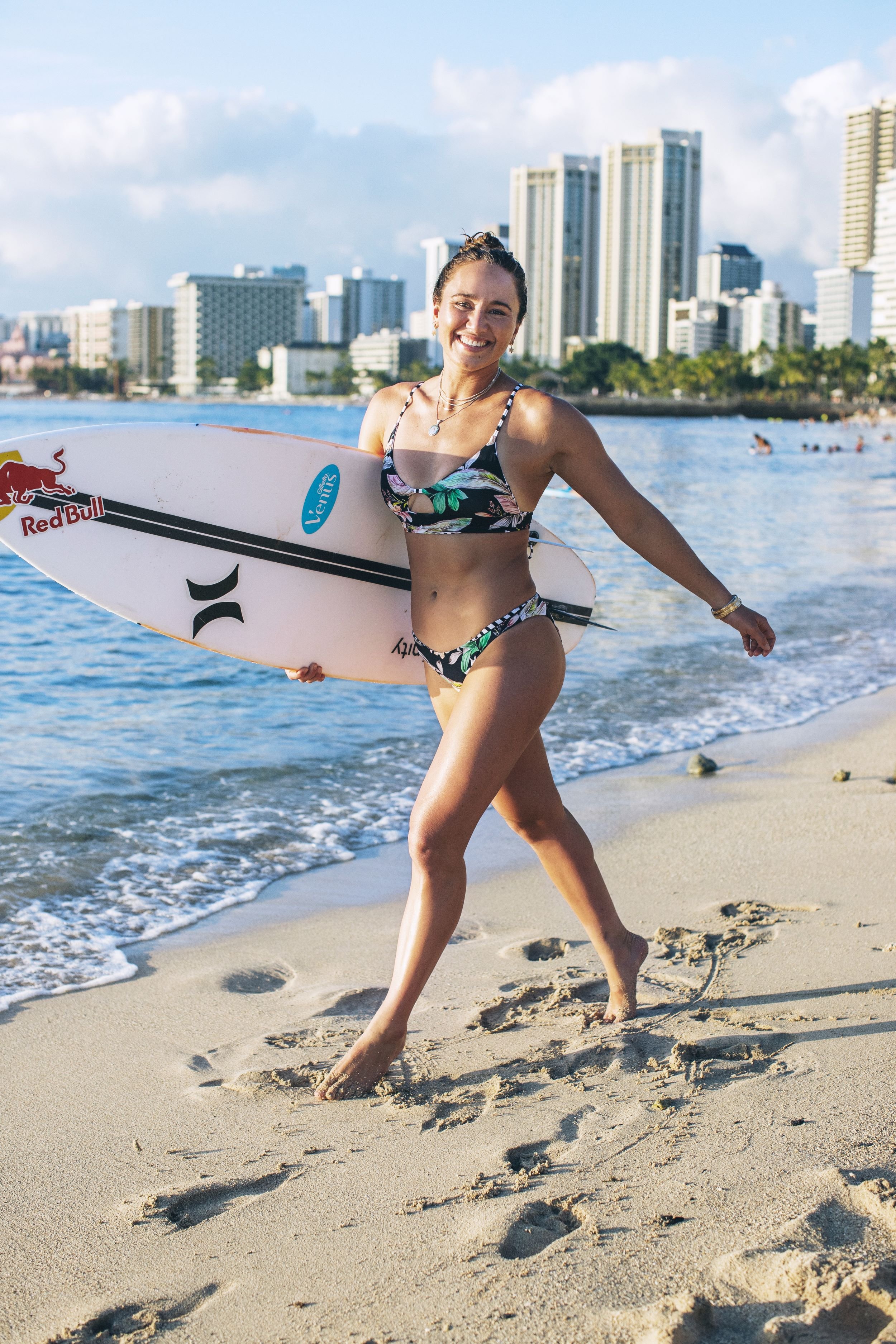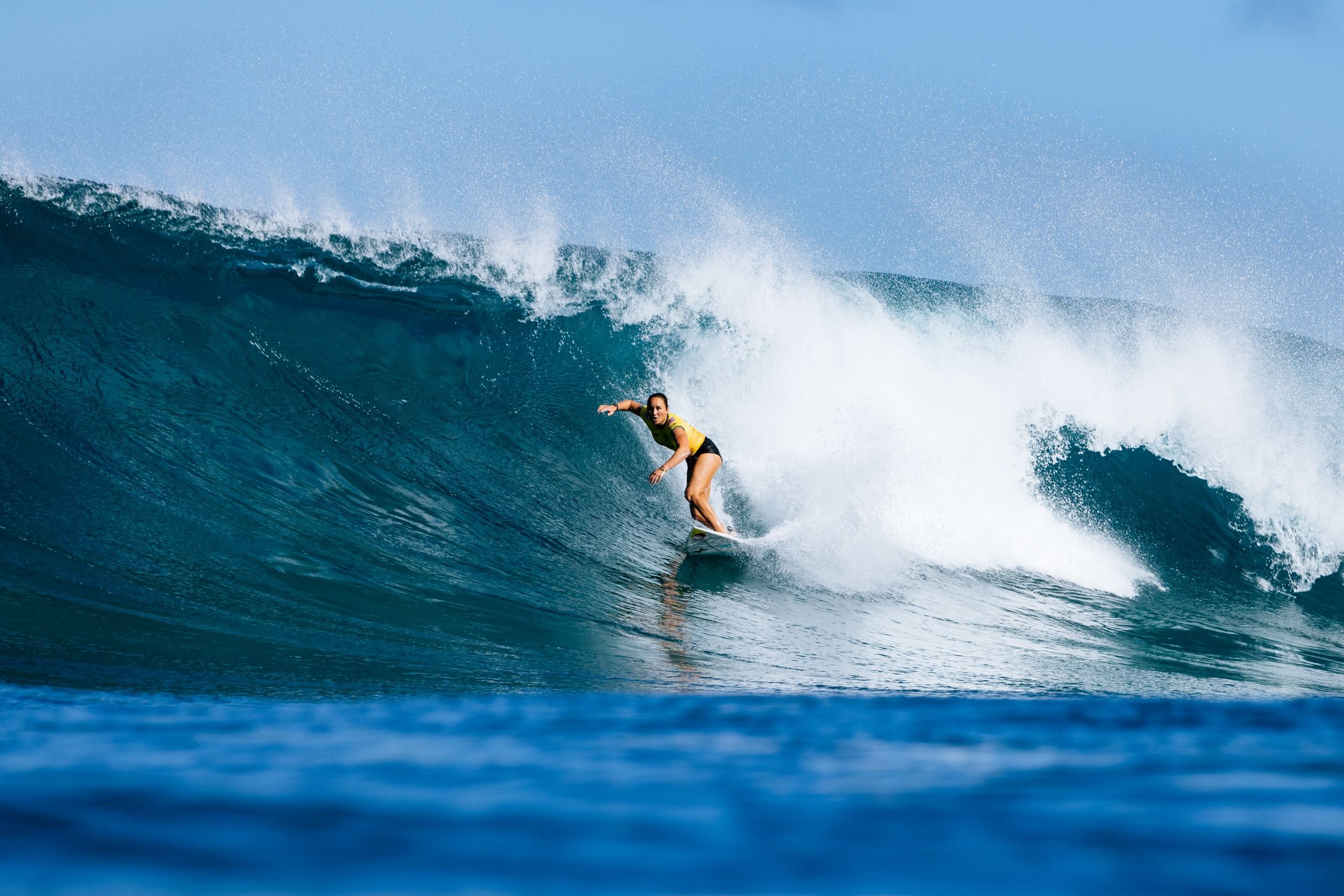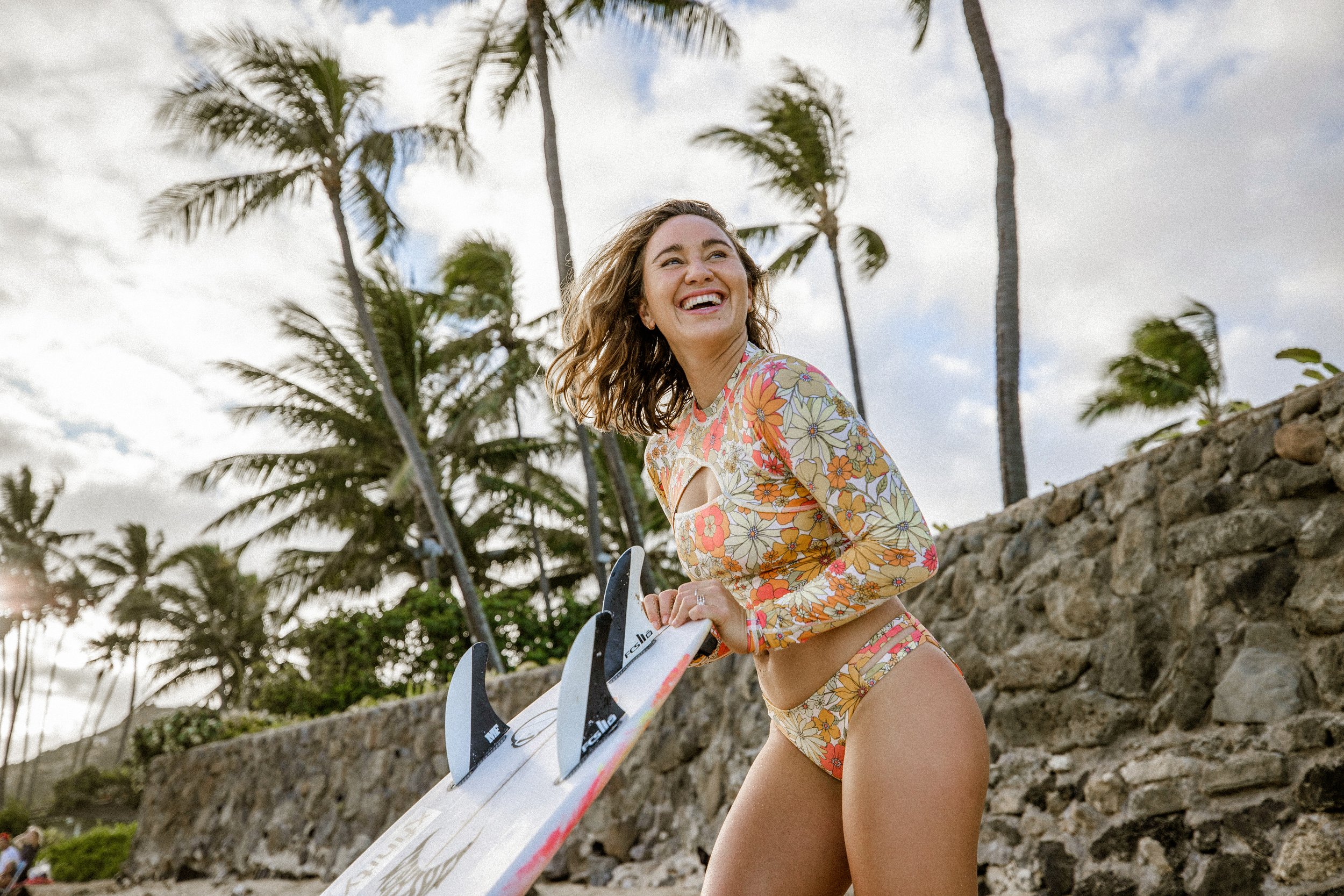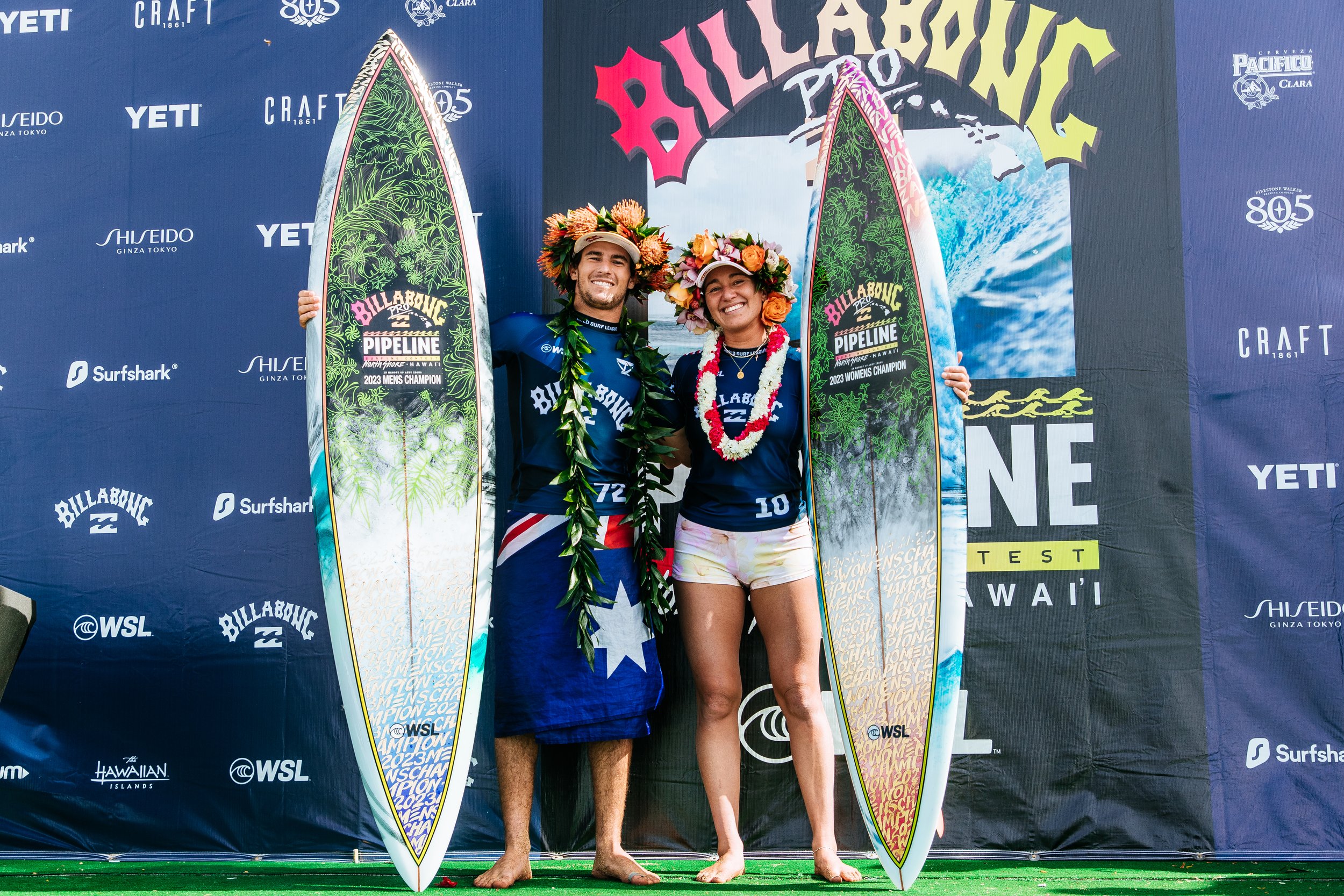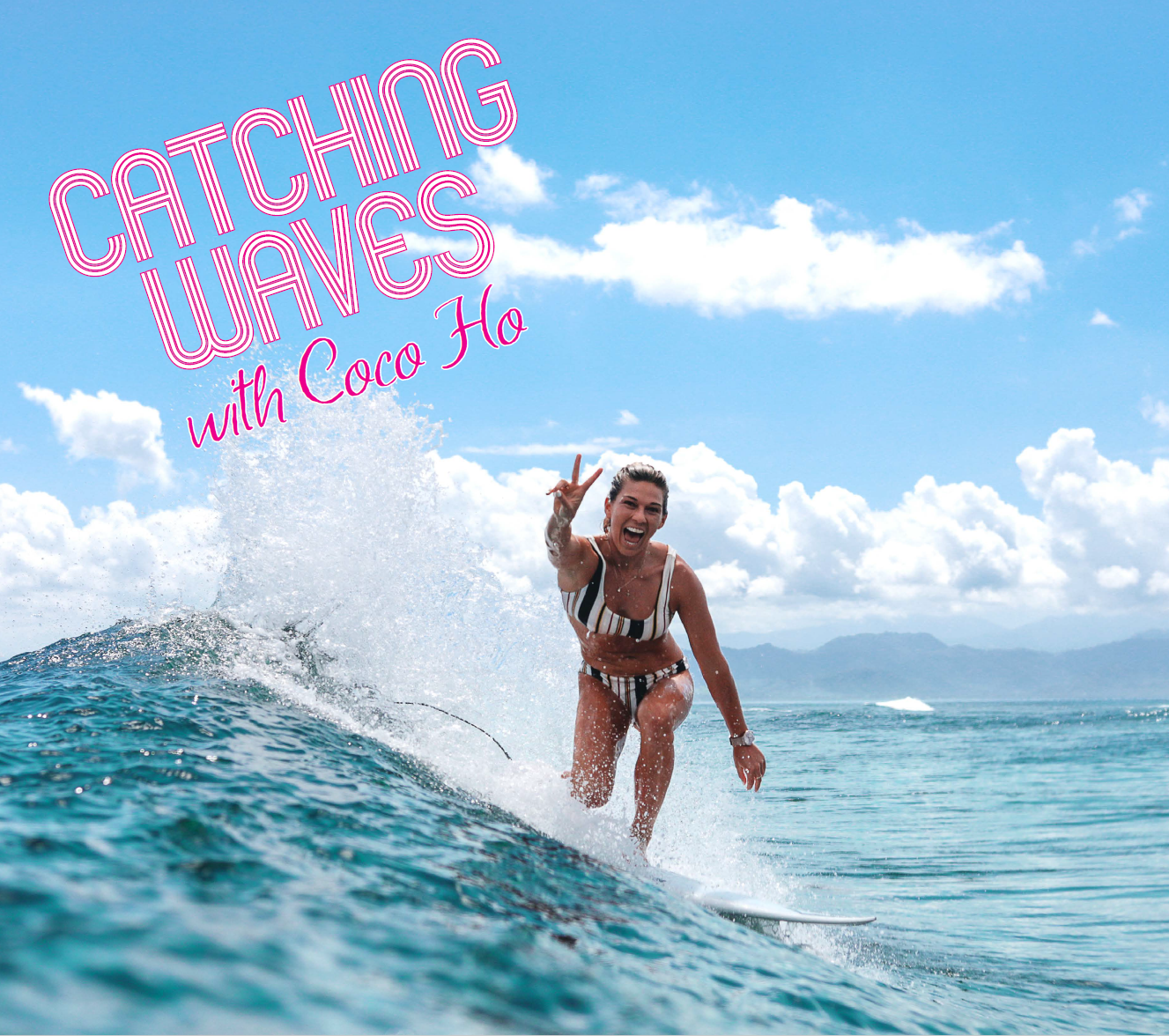We enjoy a great docuseries where we get to follow our favorite sports and get behind the action to find out how it all comes together. Prime Video's 4 episode series, Surf Girls Hawai'i follows 5 native Hawaiian females as they take their shot on obtaining a spot in the world tour. We follow Moana Jones Wong, Ewe Wong, Maluhia Kinimaka, Pua DeSoto, and Brianna Cope as we see them navigating their season, training, and interacting with their friends and family.
We caught up with Monica Medellin, Creator and Executive Producer of this docuseries. We wanted to find out more about how she became a fan of this action sport, being a surfer, working in the surf industry, and the importance of storytelling to amplify voices that are underrepresented but have powerful points of view.
ATHLEISURE MAG: We’ve personally been a fan of your work for awhile so it’s exciting to be able to talk with you to know more about you’re your docuseries, and what you’re working on that’s coming up!
MONICA MEDELLIN: Amazing! I’m so excited! I think that this is perfect because every body that knows me makes fun of me because athleisure is all I wear.
Thank you so much for highlighting me. I feel like a unicorn in this space. I just turned 30 and this all happened before then and it seems like the tides are changing and there are very few women that are like me in this position. So I really want to share my story and to hopefully inspire more storytellers in narratives like this.
AM: Absolutely!
Before we get into talking about the docuseries, we want to know more about you. What was the moment that you realized that you wanted to be a filmmaker?
MM: Oh, I mean, I feel like I was destined to be a filmmaker ever since I was a little girl. I couldn’t really identify that that was what I wanted until later in life. I've always been involved in sports as a child. My mom was a single working mom from Mexico and she raised me on her own.
Through that, she found different sports programs and extracurricular activities and that’s where I really fell in love with different sports and it started with more traditional sports like volleyball, basketball, and soccer. Then I moved into gymnastics and then we both discovered surfing while we were walking along the Santa Monica Beach and at that point, I had started skateboarding, surfing, and exploring these non-traditional sports.
I actually used her old camcorder to film myself skating! That’s what I did with my friends on the weekends, so obviously the production value was what it was!
You know, I started documenting sports from a young age and I started documenting myself as a young girl participating in those sports from that time. You know from there, I obviously played sports in high school – I was the team captain of the volleyball team, I would teach at surf camp over the summers and I moved to university and I studied Journalism at the University of Oregon. So, this theme of filming our experiences as women in sports has been something that has been a thread throughout my entire life!
AM: Wow! It also seems that a lot of your films as well as commercial work that you have done has also focused obviously on sports, but also covering underrepresented groups as well. As someone who is Black and has enjoyed sports such as snowboarding where people don’t think of us playing it, I like that you’re showcasing what is being done that people don’t necessarily think of.
MM: Right and I think that that’s something where you want to be niche, but not too niche where you miss out on telling other stories as well. I think that my main thing is highlighting and shining a light on stories that are underrepresented in the mainstream. That is the essence of my work. It doesn’t just need to be sports, it can be in anything. I mean, when I worked at the Los Angeles Times in 2015, I was helping launch a new platform that talks about this emerging American identity with race, immigration, identity, what does it mean to be American, but also never to really see yourself represented in the story in that way. So, I think that that time at the Los Angeles Times and producing documentaries around those topics really did shape the direction of how I approach my storytelling. Like sure, if I’m telling a story about an athlete, that’s in sports, but I want to uncover who the person is behind the athlete, what is the human experience that we can all relate to because ultimately, even when you see Surf Girls Hawai’i, it’s not just about surfing. It’s about coming of age, it’s about sisterhood, it’s about supporting each other through challenging times, and navigating life. So, I think that that is my approach through all of my storytelling that makes it universal whether you are interested in the sport or the topic itself.
AM: Absolutely!
What was the first project that you did that you realized that you wanted to do this as a career?
MM: Hmm, it’s actually funny, because my first film that I created was about a young Latina surfer in the Bay Area. She was part of a program that helped underrepresented youth get into the sport of surfing, get into action sports, and that film actually premiered at the Los Angeles Latino International Film Festival here in LA. That moment of seeing my work and my film, premiered at The Chinese Theatre, in Hollywood was such a monumental moment for me because I could see that this kind of storytelling was valued. I could see the reaction of the audience and I could see the emotion and I could actually feel the energy in the room. So, I feel like the LALIFF selecting my film to premiere at the Chinese Theatre in that way was a really defining moment for me. I knew that I could really make something out of this career and hopefully, tell more stories. At that point, I was still in my early 20’s so it was just the beginning, but I think that that was the moment that I decided to pursue this full time.
AM: We love surfers! This year alone we had the honor of speaking with Carissa Moore as well as Kai Lenny as covers for Athleisure Mag. You also surf – what is it about this sport that you enjoy so much?
MM: I think surfing is such a unique sport because it’s not just a sport. It’s a lifestyle, it’s a culture, it has deep roots around the world, and had I known that this sport is originated by people of color and women of color, I would have felt that I belonged in it sooner. (Editor’s Note: The origin of surfing can be found in various cultures as far back as the Incas in 1590 when a Jesuit missionary José de Acosta published it in Historia Natural y Moral de las Indias. In West Africa’s – Ghana, Ivory Coast, Liberia, and Senegal and Central Africans in Cameroon have had various accounts of this activity in 1640, 1679, 1834, and 1861. In Polynesia in 1769 there is documentation of he’e nalu which translates to wave sliding by Joseph Banks as he was on HMS Endeavour during the first voyage of James Cook while the ship was in Tahiti.) I didn’t know anything about the history of surfing until I met another Latina surfer who shared with me this deep history. After discovering that, I made it my life’s mission to try to tell the world that this is the truth and that this is the history of this.
I think that with surfing, it’s so special for that deeper reason, but also I think that it’s a way of connecting with nature to get outside and get off your phone. You have no way of communicating with anybody when you’re out there. It’s your time to exist and enjoy yourself and I think that it resonates with a lot of people. I think that when I first started surfing in Los Angeles, the lineups looked a lot different than they do today. Today I actually paddle out and I see more women, I see more women of color and I actually see friends every single time that I go. I think that this surf culture has been defined by advertisements, brands, the industry, but we are reclaiming what it means to be a surfer and you’re seeing that happening in your local lineups. You’re seeing that happening through Surf Girls Hawai’i, you’re seeing that happen through different lenses, I think! I think that that is what makes surfing special. It’s just, there’s nothing else like it honestly.


